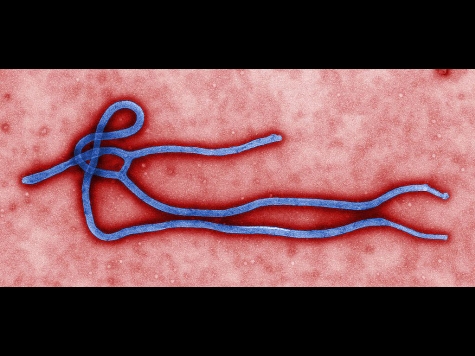
HOUSTON, Texas — The Obama Administration’s Department of Homeland Security (DHS) announced on Wednesday that “enhanced screening measures” will be implemented at airports to prevent the spread of Ebola in the United States. It is unclear, however, what exactly is “enhanced” about the new standards, which only include officials taking the temperatures of travelers, asking targeted questions, and the collecting contact information.
Ebola symptoms may take up to 21 days to appear after an individual becomes infected with the virus. Given this fact, the new screening methods offer no way to prevent individuals with Ebola, but whom are not showing symptoms, from coming to the United States.
There is additionally nothing preventing those with a temperature from taking Advil to lower a fever, and then making it through airport security.
The announcement of then new enhanced measures came on the same day that Thomas Eric Duncan, the Liberian man who brought Ebola into the U.S., died in a Dallas hospital.
Duncan traveled to the U.S. after coming in contact with a woman dying from Ebola. He was not showing symptoms of the disease at the time of his travels.
On Wednesday DHS Deputy Secretary Alejandro Mayorkas said the federal government’s first priority is the safety of Americans. But the newly announced enhanced screening measures appear to provide little additional security. Travelers coming to the U.S. from West Africa already had their temperatures taken before boarding planes, and that did not stop Duncan from getting to Dallas.
Mayorkas additionally stated that DHS would try to prevent the spreading of Ebola by “providing information about Ebola to airlines,” and posting information about the virus to raise awareness.
Again, this does not help stop travelers who have Ebola but are not yet showing symptoms.
The CDC has repeatedly insisted that a travel ban from Ebola-afflicted nation is not necessary. Dozens of flights still come to the U.S. from West Africa each day. In many cases, the flights — many of which are relatively inexpensive and accessible — include layovers in heavily populated U.S. cities, such as in New York’s John F. Kennedy Airport.
For the foreseeable future, passengers will continue to board planes from Ebola-afflicted nations, heading for the United States. Individuals with Ebola, who are in the early stages of the virus and not yet showing signs, may be able to board such planes successfully and then be treated for the illness in the U.S. once the symptoms begin to show.
Follow Kristin on Twitter @KristinBTate.

COMMENTS
Please let us know if you're having issues with commenting.